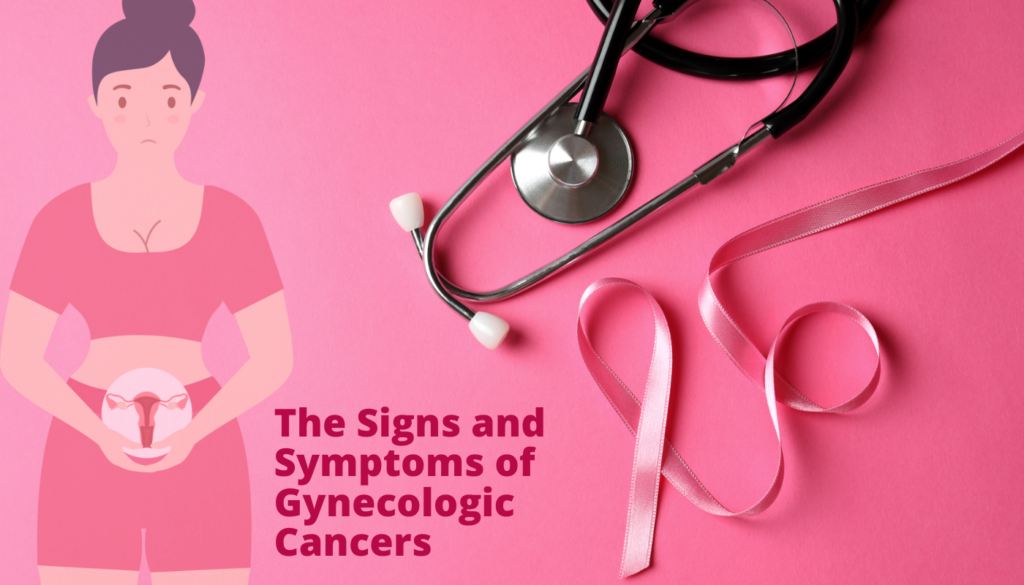The Signs and Symptoms of Gynecologic Cancers and How to Report Them
There has been a long-held misconception that gynecologic cancers are “silent”—that is, untreatable and undetectable until it’s too late, leaving few treatment choices accessible. Modern testing, screening, and genetic discoveries, however, have allowed doctors and researchers to uncover ways to diagnose gynecologic cancer and even prevent it in many cases.
A smile shared by three women of varying ages
Rebecca Stone, M.D., a gynecologic oncologist and surgeon at Johns Hopkins, discusses the dangers of gynecologic cancer, the most effective ways to protect yourself and your family from this disease, and the symptoms to look out for.
Assess the Dangers
Cancers that start in a woman’s reproductive system are collectively known as gynecologic cancers. Therefore, gynecologic cancer can develop in any woman. About one hundred thousand cases of gynecologic cancer are identified in American women annually. Important risk factors include:
- A strong family history of the disease is the most important recognized risk factor for ovarian cancer. Our current best guess is that inherited mutations in ovarian cancer susceptibility genes (BRCA1 and 2) account for around 20% of all ovarian cancer cases. Lynch syndrome is the most common hereditary factor for endometrial cancer. However, it does run in other families. Endometrial, ovarian, and colon cancers are more common in people with Lynch syndrome, a hereditary cancer syndrome.
- Obesity: Endometrial cancer has been on the rise, and doctors have noticed a correlation with the rising obesity rate in the U.S. “Obesity increases the risk of this cancer by causing chronic inflammation and an increase in estrogen production, which can affect the lining of the uterus (the endometrium).”
- Time: A woman’s risk of developing gynecologic cancer is highest after the age of 60.
- Human papillomavirus (HPV) is an STD with close links to gynecologic cancer. Cancers of the vagina and vulvar glands can also be caused by various strains of the human papillomavirus (HPV), which accounts for nearly all occurrences of cervical cancer.
Gynecologic Cancer Prevention
Acknowledging your risk for gynecologic cancer and taking advantage of the suggested screenings, tests, and immunizations are of the utmost importance.
When used in conjunction with HPV testing, the Pap test becomes the gold standard for cervical cancer screening. The diagnosis of precancerous alterations in the cervix before they progress to cancer can be achieved by the use of Pap tests and HPV testing. Many people are curious about the possibility of using the Pap test to identify endometrial and ovarian malignancies. Experts in the field are looking into this matter.
- Pap smears should be done every three years for women between the ages of 21 and 29.
- Every five years, women who are 30 years old and up should get a Pap test in addition to an HPV test, a procedure called co-testing.
- Women 65 and older may no longer be screened if their risk is low.
Keeping to a healthy diet and way of life is crucial since obesity is a major risk factor for endometrial cancer. The Johns Hopkins Weight Management Center’s Concierge Endoscopic Weight Loss Program is designed to assist women in reaching and maintaining a healthy weight, whether their goals are short-term or long-term.
Many conditions can benefit from genetic counselling and testing; women should regularly discuss their medical history with their doctors to determine if this is required. A genetic counsellor should be seen by women who have a personal or family history of cancers such as ovarian, premenopausal (breast cancer before the age of 45), endometrial, colon, or gastrointestinal cancers before the age of 50. According to Stone, genetic testing should soon be accessible to all women as a preventive health service. The reason behind this is that many women who are at a higher risk of acquiring certain cancers do not have a known family history of the disease.
One effective method of avoiding cervical cancer is the HPV vaccine. The American Academy of Pediatrics published a major report not long ago showing that vaccination has decreased the HPV rate in teenage females by 63% and in women aged 20–24 by 34%. By lowering the HPV rate, we can cut the number of cervical cancer cases in the US by more than 3,000 years.
Anyone between the ages of eleven and twenty-six should get the HPV vaccine.
Possible Signs and Symptoms
“Abnormal bleeding, pelvic pain, and bloating, to name a few,” adds Stone, referring to the numerous symptoms that women can notice as indicators of gynecologic cancer. Do not panic; these signs and symptoms typically indicate less serious health issues. A word to your doctor as soon as you notice anything, though.
Abnormal menstrual bleeding, abnormally heavy menstrual periods, abnormally long menstrual periods, abnormal bleeding after menopause, pain and bleeding during intercourse, and cervical cancer are all symptoms of this disease.
- Endometrial cancer symptoms include irregular or heavy bleeding after menopause, pain when urinating, discomfort during sexual activity, and a lump in the pelvic region.
- Cancer of the ovary: Experiencing nausea, vomiting, gas, indigestion, or swelling in the lower abdomen; not wanting to eat; having to urinate often; unusual bleeds from the vagina
- Signs of vaginal cancer include abnormal bleeding, pain during sexual activity, constipation, pelvic pain, an abnormally shaped tumour, and problems peeing.
- Breast Cancer: Your vulva changing colour; abnormal bleeding or discharge unrelated to menstruation; the presence of a nodule, lump, or sore; persistent itching
- Preventing and detecting gynecologic malignancies is possible through awareness of risk factors, living a healthy lifestyle, getting tested and screened often, and being alert for possible symptoms.
Conclusion:
It is critical to recognize the symptoms of gynecologic cancers, discover them early, and treat them effectively. The results can drastically differ if you know your body and notice strange changes. Essential actions in minimizing the risk of these cancers include:
- Maintaining an informed family medical history.
- Keeping a healthy lifestyle.
- Getting regular gynecological check-ups.
Get medical help immediately if you notice any serious side effects, like irregular bleeding, pelvic pain, or sudden and unexplained weight loss. Early intervention can enhance treatment choices and survival rates. Taking charge of your gynecological health allows you to prevent illness and identify problems before they worsen.



